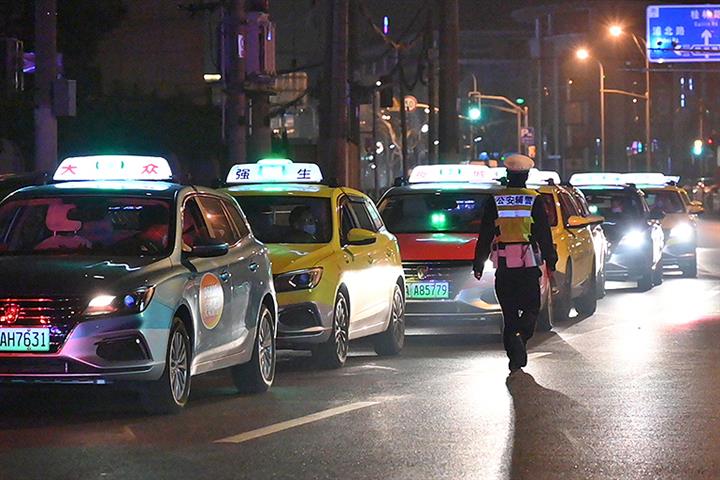 All Shanghai’s Buses, Taxis to Be New Energy Vehicles by 2027
All Shanghai’s Buses, Taxis to Be New Energy Vehicles by 2027(Yicai) Aug. 9 -- All of Shanghai’s public transport vehicles, including buses and taxis, will be new energy vehicles by 2027, according to a new plan, as the city takes advantage of China’s latest consumer goods trade-in program, which covers the replacement of combustion engine vehicles with all-electric and hybrid models.
Shanghai will upgrade more than 9 percent of its public transport vehicles to NEVs each year, under the plan the municipal government released yesterday. A total of 6,200 buses and 11,000 taxis will be replaced or added, or about 1,550 and 2,800 each year respectively.
The National Development and Reform Commission, China’s state planner, and the Ministry of Finance unveiled a series of measures on July 24 aimed at boosting the economy by encouraging the upgrade of equipment and the trade-in of various consumer goods, including vehicles. Each eligible vehicle will receive a subsidy of up to CNY80,000 (USD11,160).
On Aug. 1, the finance and transport ministries released a notice urging urban public transport companies to replace vehicles registered before Dec. 31, 2016 with NEVs and replace the batteries in electric buses that are more than eight years old. The average subsidy for a vehicle replacement is CNY80,000, while that for new batteries is CNY42,000.
Shanghai’s plan also includes the elimination of diesel-powered freight vehicles with low emissions standards. By 2027, a total of 50,000 such vehicles will be replaced or added. The same will happen to around 200 airplanes and 120 vessels.
Eighty maintenance and upgrade projects for public transport infrastructure will also be implemented in the next three and a half years, under the plan.
The demand for NEVs and power batteries is rebounding, and the vehicle trade-in policy is taking effect, according to research report by Shanxi Securities. Along with the continuous launch of new NEV models that is expected to further stimulate NEV market growth, it added.
The trade-in policy and the new round of NEV promotions in rural areas are expected to boost demand, Guotai Junan Securities said in a report, adding that the value of companies in the industry still have room to increase.
More than half of the passenger cars sold in China last month were NEVs for the first time ever, according to data released yesterday by the China Passenger Car Association. Retail sales of NEVs surged 37 percent to 878,000 units last month from a year earlier, beating expectations.
The trade-in policy is gradually taking effect, and various local governments have proactively launched follow-up measures, spurring consumption, said CPCA Secretary-General Cui Dongshu.
Editor: Futura Costaglione